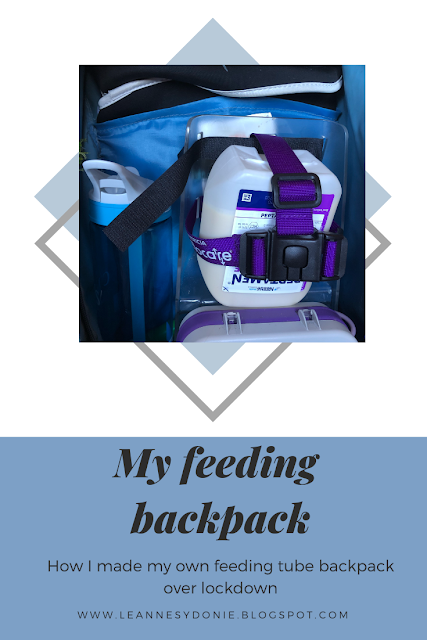Another Month, Another Hospital Admission
It’s been a short while since I lay in a hospital bed, a
while longer than the time spent between my last two stays.
I was doing okay; let’s do a recap of the weekend events.
I do a shift on Saturday, fine. I do a shift on Sunday, also fine. But then I get tired. Really tired. And my back is sore. and
I can’t catch my breath properly. And then suddenly its eleven at night and we
check my pulse and I’m tachycardic with my pulse racing at about 120-130.
We phone NHS 111.
They go through the standard questions, am I conscious, breathing, turning blue
then;
“Is she on any chemotherapy?”
Yes. I am. Mercaptopurine is a form of chemotherapy used in leukaemia,
and I’m on mercaptopurine to lower my immune system because I had a reaction to
the more commonly used azathioprine. My immunosuppressant is not just an immunosuppressant,
it is cytotoxic and destroys living cells. It can cause complications such as
pancreatitis [they thought I might have had this when I started taking it] and in
the common side effects, of the cancer drug, you’ll find a wide range of cancers.
Mostly to do with the skin. Lovely.
I was rushed in to the hospital within the hour.
A&E was surprisingly empty. Or maybe not surprisingly, it was
a Sunday night in a rural hospital. The nurses were lovely, took my history and
sat me in the waiting room. A junior doctor came out, took some more details, I
explained how through the day I had a niggling feeling that felt like it could
have been a UTI. My mercaptopurine means that infections can blow up into severe
attacks on my body that I can’t fight off. She did a urine test, it came back
clear for infection.
Really there was only going to be one explanation for why I was
in hospital, wasn't there. It's my Crohn's.
for a bit of background,
I’ve been on a reducing dose of prednisone for about six
months now. You’re supposed to be on an eight-week taper from 40mg, but two
hospital admissions and weeks on 60mg IV doses means that I’ve been sitting
somewhere near 35mg most of the time, a high dose of steroids. This is really
bad for your body, not only putting you at higher risk of osteoporosis and oedema,
violent mood swings, joint pain and fatigue, but incredible weight gain, and severe hormonal imbalance.
Upon arriving home, my original GP and subsequently the
surgeon was shocked at the amount of weight I’ve put on since being on steroids-
describing me as ‘cushingoid’- I am covered in deep purple stretchmarks, my
face and neck is swallowed by my double chin and I have deep, dark circles under my eyes. I've been avoiding photos and mirrors for a while. Cushing’s Syndrome is a rare condition you
can develop after long term steroid use [ie, longer than an eight-week taper]. This is where your body stops producing a normal level of cortisol because it's relied on the steroids for too long. Although I haven’t had any tests for this, the team at home are incredibly
concerned about the steroid use and want me to cut down, as soon as possible.
So I’ve been tapering down with the help of enemas (joy). Despite the fact I’m still bleeding when I go to the toilet, and there’s
still active proctitis, I’ve managed to get myself to 20mg of steroids - a half
dose. No longer high, but still too high for surgery.
Last time I managed to get to 20mg of steroids, I was rushed
back into the gastro unit for a week of 60mg IV steroids. So, kind of progress. Not
really.
My body just doesn’t like losing the safety net the steroids
have given it. It’s stopped responding positively to the steroids, doesn’t
really respond when I switch to oral tablets at all, but god forbid I lower my
dose to anything lower than 30mg.
This presents a problem for my rural hospital, with no
gastroenterology unit. They can’t just stick me on IV steroids under the watchful eye of specialists and get me sorted with another eight-week taper, because we’ve been making progress on this
taper. I'm not a typical patient who will react well to the steroids. They can’t send me to Aberdeen, because my treatment is in Dundee. They
have to do something, but they don’t know what. And they don’t really know what
the problem is either.
So they admit me to the surgical ward. I found out after
being discharged that doctor who admitted me was a gastroenterologist on call
for the weekend, so I bet I was a fun case to be discussed. I was seen by my
normal surgeon and the normal surgical team on the ward.
Just a short stay this time; four days! You’ll be out before
you know it. Monitoring, an X-ray. The looming threat of bowel surgery.
Its very jarring going onto a ward for the first time,
especially when its different to the hospital you’ve become used to. The paperwork
looks different, there's only one toilet [that doubles up as the shower], the nurses are all new, but sooner or later the similarities come out. The nurses are all friendly and kind [and the routine is
incredibly helpful], the obs machines will definitely wake you up rolling
across the floor, the tea and toast is the same really. You fall into a habit
when you’ve spent close to a month of your life living in hospital beds.
 |
| visitors always welcome: Elisha emptying the contents of the dayroom toybox onto my bed just before an afternoon ward round |
Anyway, have you ever had a team of seven well established surgeons
cheer because you’ve been able to poo into a cardboard hat?
A big risk with Crohn’s,
and being in an extended flare, is that parts of your bowel can die stop
working properly. This is especially so when you have Ehlers-Danlos which can
affect the motility of your bowel. So, when I’m in a Crohn’s flare I could be
going to the toilet twenty times a day, and when I’m out of a Crohn’s flare, I could
go a week without going to the toilet due to the slow moving of my bowel.
For me personally, we don’t know what my regular routine is,
I can’t remember. It's not something you think about when you’re healthy. I think
it was about once or twice every couple of days, definitely not every three
days or more like those who have slow motility. Either way, I’m now suffering
with constipation due to proctitis and a bowel obstruction. So I've been going fairly unregularly. The complications that could be presented by my Ehlers-Danlos are something that the doctors have
been considering over the past few weeks.
The deceptive thing about Crohn's is that when you have an
obstruction or blockage you get ‘overflow diarrhoea’. That’s what it sounds
like really, an overflow of liquid poop pushing its way past whatever is
blocking what’s in your bowel.
For me, when this passes I have a bad habit of hoping that
my Crohn’s flare is finally over with, that I’ll never have to take my Crohn’s
medicines again, that I’m cured. It’s not.
It makes it worse. In fact, I’m meant to be taking laxatives
daily, to keep my stool as a liquid. If my ulceration and disease was higher in
the bowel as it used to be, the condition would cause me to be going to the
toilet urgently and frequently, but because it is at the lower end the body
instinctively keeps the poo away from the open wound. Protecting itself, but
making me more ill as the stool doesn't stay at the right consistency, thus creating a lovely poo blockage. The condition really is heart-breaking. If it isn’t one
way, it’s the other, and really, it’s no better being 'bunged up' at all.
Whether or not I’ll need surgery is still an unknown. We will continue to reduce my steroids, because steroids make surgery risky. Surgery is also an option for people for whom unfortunately parts of the bowel have stopped working and they’re bad at taking laxatives. But there’s
still options for me we haven’t tried yet: biologics are the big hope, funding
issues being the major barrier to these while I’m at home.
We aren’t sure about the high heart rate, that could have been an
underlying infection, could have been pain, or side effects of medications, but once I pooed in a cardboard hat after four days in
the hospital with no movement and an ungodly amount of laxatives, I was let out of hospital with a big smile and a
letter following me back to Dundee. I'm having a 48 hour echocardiogram (ECG) just before I head back to university anyway, so whether this is something we have to worry about, we will surely find out after then. With Ehlers-Danlos, heart health is incredibly important and monitoring it is probably the most vital part of my health plan. Even if staying in hospital seems a chore, being on a ward and close to an obs machine is best when my valves are weaker than average and working away double the speed they should be.
It’s strange. I actually missed my work in hospital. I
desperately wanted to get out in time for my Wednesday shift without having to
let the team know I had been in the hospital, and I went back to work as soon as I was able to, rather than taking advantage of the fact that well, I don't have to work if I don't want to, I guess.
I just want to be okay, normal, and in a routine.
But I’ve lost half a week of my last month at home to
sitting around on the surgical unit, and now I’m telling the internet stories
about pooing in a cardboard hat.
Leanne x


Dae Weel and Persevere
ReplyDeleteYour old School motto
That you are certainly doing Lass, you are very inspiring.